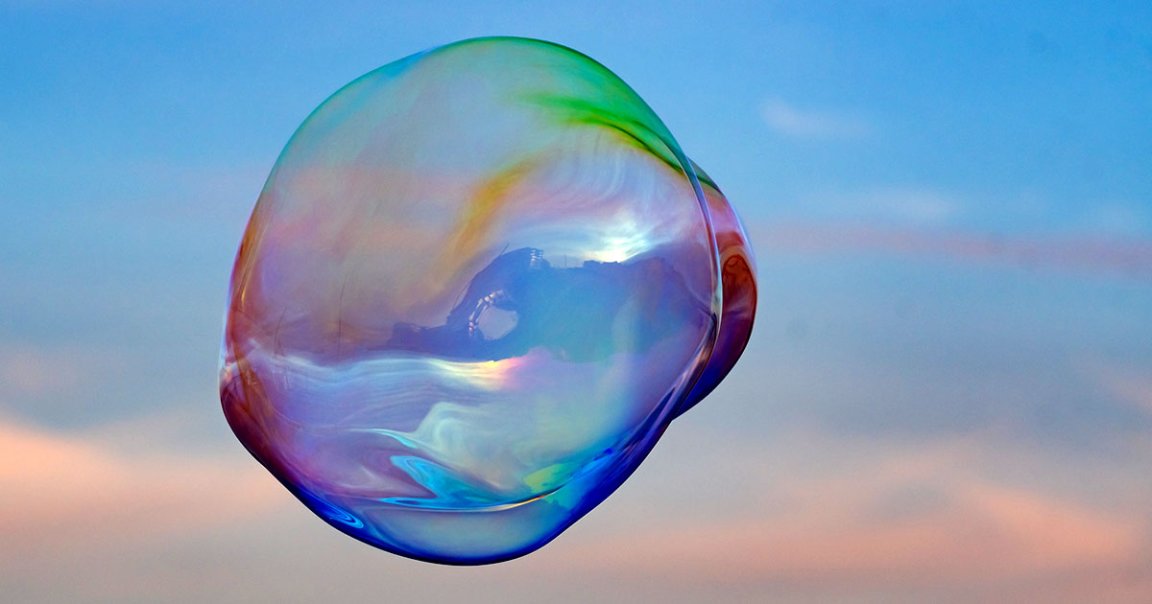
We’re willing to bet that as a kid, most of us blew bubbles and tried to see which ones lasted the longest. We’re also willing to bet that none of them lasted more than a few fleeting moments.
Now, scientists have pulled off the seemingly impossible, leaving our childhood attempts in the dust. In a new study, researchers from the University of Lille in France created bubbles that can live as long as 465 days.
They did, however, take some liberties.
“Soap bubbles are by essence fragile and ephemeral,” the study’s authors wrote in their paper. “We design bubbles made of a composite liquid film able to neutralize all these effects and keep their integrity for more than one year in a standard atmosphere.”
According to APS Physics, the team studied a type of bubble known as a “gas marble.” Previous research has shown that plastic beads packed on the bubble’s shell can make it strong enough to be held in a hand or rolled along a surface — but this was the first time scientists studied the bubbles’ lifespan.
So the team set up an experiment and blew three different types of bubbles, including soap bubbles, water-based gas marbles, and water-glycerol-based gas marbles.
Soap bubbles lasted (unsurprisingly) the shortest amount of time, normally less than one minute. Water-glycerol marbles lasted the longest, with the oldest survivor making it to 465 days after its “birth.”
The team believes the glycerol was be able to absorb enough water from air to compensate for evaporation and also stopped the bubble from draining enough water to rupture.
So what, exactly, is the point of a geriatric bubble?
Some suggest the science could be used in medicine and consumer products.
“I could imagine that the general problem of preventing evaporation could have many practical applications,” New York University math professor Leif Ristroph, who wasn’t involved in the study but has studied bubbles in the past, told NBC News.
“I’m daydreaming here, but I could imagine it might be useful to ‘armor’ little droplets in aerosols and sprays to make them last longer in air,” he added. “For example, some sort of medicine that’s administered by spraying and breathing in the aerosol.”
The researchers behind the study, however, have yet to comment on the possible use cases of their titan bubble.
More on important bubbles: New Theory: The Universe is a Bubble Inflated by Dark Energy